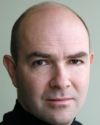
From free scoops of Ben and Jerry's ice cream to the business model where razors are given away to sell the blades, there's a whole gift economy at work that competes with the commercial economy. We think of free as scary and radical but this economy has always existed. Previously not dignified as an economy, its currency is not money: It is reputation, attention, respect, fame, fun or money from a superior service after giving away something inferior for free.
Broadcasting and television made distribution almost free: to amortize the cost of expensive broadcast equipment, reaching out to millions of people reduces the marginal cost of reaching to an additional customer to almost zero. Anderson explains how the price of a magazine is no indication of the underlying cost to produce it. The compensation for the publisher comes from selling your attention to the advertiser. The price is an arbitrary suggestion to qualify the subscriber as interested.
When the marginal cost of producing something tends to zero, the smart thing to do is to treat it as zero and get ahead of the competition and give it away for free in order to sell something else. You can build whole businesses around giving stuff away for free. Chris Anderson, editor-in-chief of Wired magazine and author of "The Long Tail: Why the Future of Business is Selling Less of More", puts his money where his mouth is. He's giving away the audio version of his upcoming book, "Free: the Economics of Giving Stuff Away".
Chris Anderson has been editor-in-chief of Wired magazine since 2001. He is known for his New York Times bestselling book "The Long Tail: Why the Future of Business is Selling Less of More". He is also chairman of a start-up called BookTour.com. Before joining Wired, Chris worked in editorial capacities for The Economist, and for two scientific journals, Nature and Science. He holds a degree in Physics from George Washington University, and has done research at the Los Alamos National Laboratory. Chris was born in London and moved to the US at the age of five. He currently lives in Berkeley, California with his wife and four young children.
Resources
This free podcast is from our Tools of Change Conference series.
For The Conversations Network: